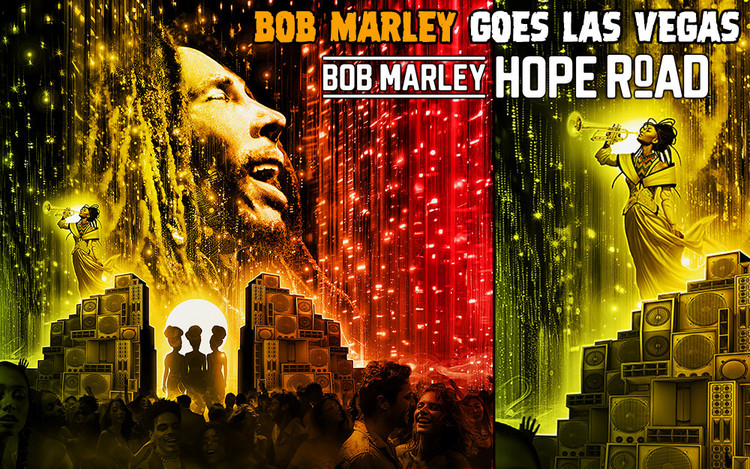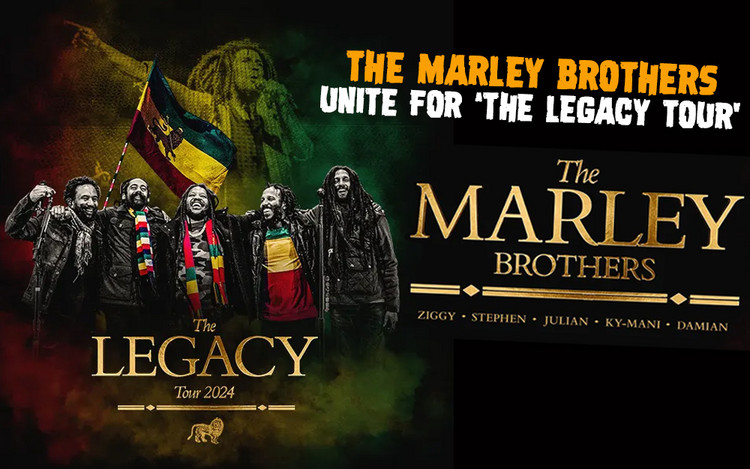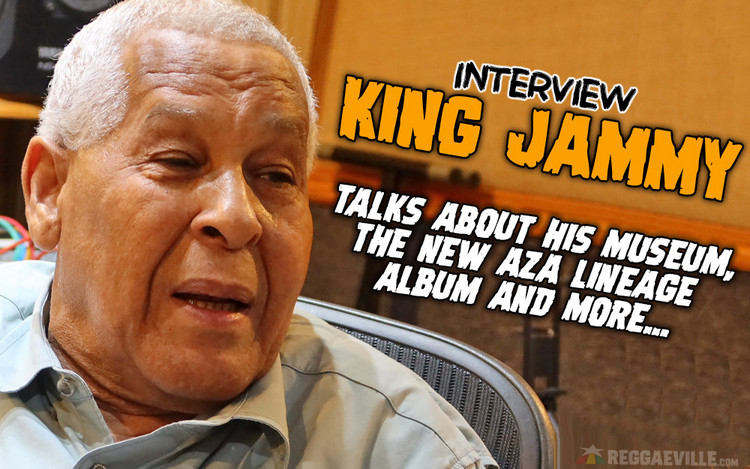Joggo ADD
Interview with Joggo
05/16/2015 by Gardy Stein

Another first time on this job: in the interview that Dutch artist Jurgen O. Seedorf aka Joggo did with Reggaeville this week, his manager Sander Nesta asked to be part of the Skype-link-up as well. Maybe it's because he is over-motivated to establish his recently founded management enterprise of which Joggo is a client, maybe he wanted to make sure the artist has all information at hand needed for the interview… Whatever the reason, the three of us had a jolly time talking about the Dutch Reggae scene, Suriname, Jamaica and of course the new album Conscious Love:
Fawaka! Let's start with your name... what made you take up the artist name Joggo?
It's a street name. They always change your given name to a street name and with the name Jurgen, they change it to Joggo or Jogga.. it's a nickname, a Surinam thing.
It has been four years since you released your last album Modern Rockers - what have you done during that time? When did you start to work on your new release, Conscious Love?
Well, as soon as Modern Rockers was ready to be released, I was already working on Conscious Love. I was working on the beats, on the riddims, and afterwards on the lyrics. So that's what I've been doing.
When you say you worked on the riddims, does it mean that you build them yourself?
Yes, that's true. I have a label called Joggo Music Productions, and I'm a producer as well. So I build riddims, I write lyrics... everything that comes with the music.
The album sounds as if you have some live instruments on it, too. Did you bring musicians in the studio to record?
I did everything by myself, except for two songs, the collaboration with Chantelle Ernandez and Private Performer, these were made by external producers. But everything else was produced by me, with my studio equipment. It sounds live though, right? (laughs) Good mixing and producing is the key of that. I only decided to do some overdubs for the horns in Keep It Burning, that was done by Dean Fraser. And Come Down was done by a friend of the man who mixed my album, Manu "Genius" Dubshelter. The live horns just have more vibes… The rest was done by me.
Speaking of the collaborations, how did you meet Chantalle, how did that contact come up?
Our managements already knew each other, so the contact was easily made. And then we went to the studio and the vibes were really irie. And I think a big tune came out of it!
And the other one, Le Prince?
He is my cousin, a really talented youth as well. So talent runs in the family (laughs). He is soon releasing his EP called Pass The Storm. He is doing great, he is an upcoming youth as well... I think I'm a good guideline for him. I also produced the riddim that Can't Breathe was made on. He's doing very well, I think he has a bright future.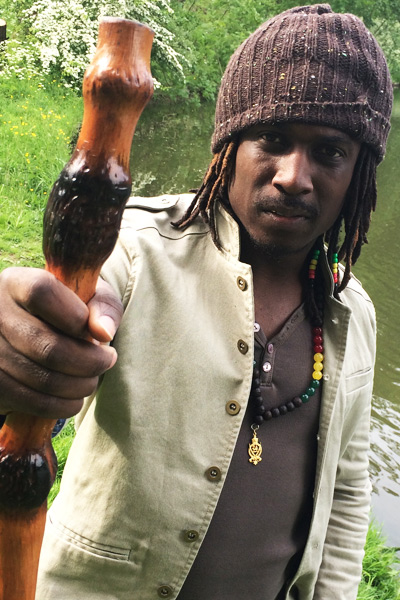 The song Can't Breathe, was it a personal experience you sing about, the police violence?
The song Can't Breathe, was it a personal experience you sing about, the police violence?
I think we all know what's on the news every day. This is a thing that started a long time ago, but it's a thing that is happening every day, especially in the United States. I think this song contains lyrics which clearly relate to everyday things that are happening in the world.
Yes, it is important to include topical lyrics like these. That's what I miss sometimes in the output of Reggae Artists... I mean, Reggae music has always been a protest music, but a lot of singers have very general formulas of Bun Babylon or Praise Jah. With a few exceptions they don't sing about current global issues like the war in Syria, Fukushima, Monsanto, the death of refugees in the Mediterranean Sea... Why do you think artists are reluctant to pick up these critical issues?
Well, I think because this system is a system based on corruption and prejudices and injustice and so on... I asked myself what it is that we want our children to learn. I think the Reggae music contains more messages than Bun Babylon and Jah Praises. It's also about meditation and self reliance, self awareness, love, upliftment and also about black history. You know, the problem that we as black people are involved with I think it starts long before... if you look at the message which Rasta is talking about, the message that is being spread, it isn't only about Bun Babylon and Jah Praise. I think the main problem is that the history is repeating itself. All those things that are happening right now… Actually you can personalize it by pointing at someone getting shot or a war being done, but actually it is because of the system that is teaching the children, the youth, to be involved with sex and violence, all the wrong things. How should they grow up then? This is what you get in the future when you teach the children these things. So, it's the basic things that Rasta is teaching us. It's the system that is creating these kinds of things, so that's why we are still bunning Babylon!
How is the Reggae scene in the Netherlands? Is it a big massive, is it active? How can we imagine the people there?
The Dutch Reggae scene is a growing one. I think it's still not big enough because there is a lack of Reggae music surrounding us and also in the mainstream, but that's a problem that goes back for years and years... but also there are a lot of new artists coming up who are building this new Reggae scene up. Such as Rapha Pico, Junior Kenna, Black Omolo and some other youths coming up. We have Ziggi Recado who has also done great things for the Dutch Reggae scene and this has to grow, you know. It's small but it has a good potential.
Do Reggae songs get played on mainstream radio stations in the Netherlands?
Well, you have a Bob Marley coming through now and then, or UB40 maybe, but... if you look at Sizzla and so, it's not being played on mainstream, this is why we are still fighting to get recognition.
I saw that your song Take It Slow made it actually into the mainstream media in a commercial... how did that happen?
I was approached by Massive Music to do a song for a commercial. Massive Music is a music agency that produces and composes music for the world of advertisement, broadcasting and the like... So they were searching for a Reggae artist to produce a tune for a commercial, so they came to me and asked if I would produce a song for them. It's about warning drivers to drive slow in neighbourhoods, so it seemed like a good thing to me, a good project, so I agreed.
And the song is one of my favourites!
Sander Nesta: Take It Slow will be one of the first singles we really want to promote, so after the release it's the one that we want to promote big.
You should make a video for it! Apart from the commercial (laughs).
We will!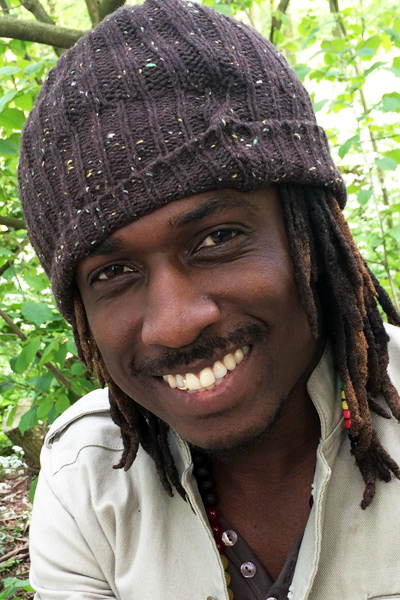 So, now that the album is out you will do a tour to promote it. Which places are already fixed and which places are you especially looking forward to?
So, now that the album is out you will do a tour to promote it. Which places are already fixed and which places are you especially looking forward to?
I am looking forward to every single one of the shows! Me and my band, we just want to perform! We start the tour in Holland and we are now busy setting up the rest of Europe and South America. As soon as that is all confirmed we will let you know! We already have a few gigs and it was already confirmed even before the album came out, so we expect to get a lot of more gigs after the album is released!
Does the band have a name or is it just like "The Joggo Band" or something?
(laughs) The name of the band is Jah Livity.
Sander Nesta: Really really brand new! Like 30 minutes ago we decided on the name! It's a new band with young musicians from Amsterdam and throughout... they are all very talented and Jah Livity stands for living together, you know, it's like one big family and they are working every day so hard in the studio, they are practising almost 12 hours a week.
How many musicians are there in the band?
We have a basic of 6 people, including the backings and myself. But depending on the show we take, we might add percussions or horns or whatever.
You have roots in Suriname… do you still have links there, relatives maybe? Do you go there often?
Every time when I'm free you can find me in Suriname. My parents were born there and from 2008 to 2011 I've lived there. Right now politics are on, though, I think the 25th of this month there will be elections, so it's a very tensed time in the country right now.
There are a lot of artists from there!
In Holland, yes… because Suriname was a Dutch colony. That's why we speak Dutch and also Surinamese which is a Creole language, so we have a lot in common.
Have you been to Jamaica?
Not yet! I made plans to go there, but it was never my time yet. But one way or another, I will go there soon!
Sander Nesta: When music is produced in Jamaica, you always feel the Jamaican influence in it, right? What we wanted to do, is like SOJA do, Rebelution do, Midnite do, they show their own style in it. Of course, Reggae music has its roots in Jamaica, but I think if you have the talent and you feel the music, it doesn't matter where it is produced. And maybe you even get more productive over here! (laughs) But we definitely also will get Joggo to Jamaica soon. We want to do the video clip for The Change with Chantelle there. And we try to bring Joggo to the next Rebel Salute in January 2016. 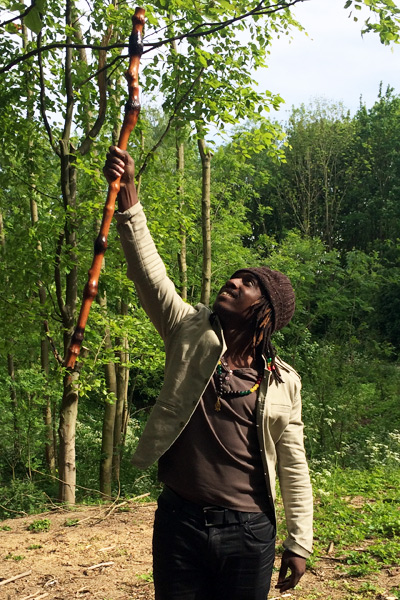 Nice. Joggo, apart from your music, what do you do in your free time? Do you still play football?
Nice. Joggo, apart from your music, what do you do in your free time? Do you still play football?
No, I'm busy with my music, and my family of course, I have 3 kids. So first thing is the family, and then the music and the productions I do. So this is my daily routine.
Looking into your future, what do you plan to achieve?
Now I'm busy with my career, and as I said my family is very important, so I have to make sure to put food on the table every day. Second of all, I want to take my label, my music, to a higher level. I want to give upcoming artists a chance also, because I think I've been blessed and I like to bless other people also and give them a chance to do their thing, so that's my main focus right now. And when they are developing their talent, I'm also developing. Plus, I want to work with Jamaica's finest too. It's a big dream of mine to make an album produced by Stephen Marley or one of those great artists.
Ok, good luck with that! Thank you for your time. Anything you want to add?
I send my greetings to the people of Germany - it's a special country for me. Not only because my name is German, but also because the first single of me called Beware was very well received over there. Big up Reggaeville, too! And maybe we'll see at Reggaejam next year – Sheriff promised me once that he will let me play there with my band.




